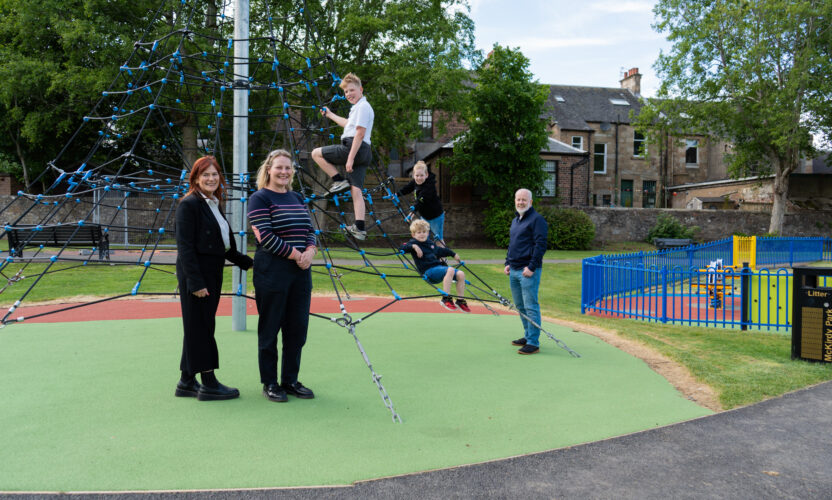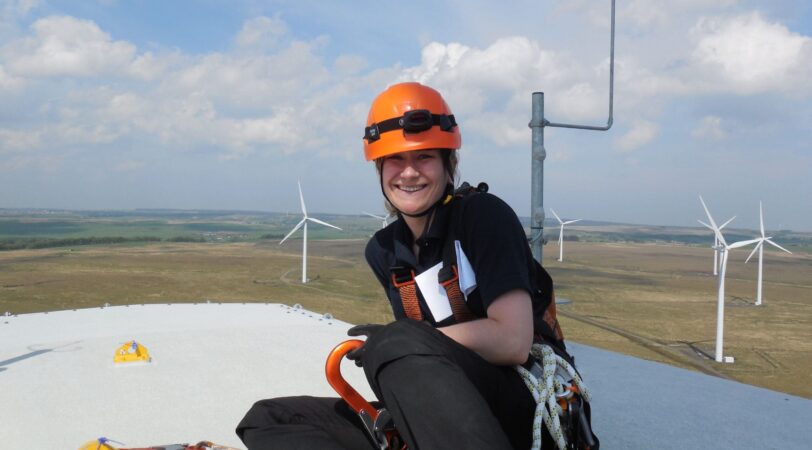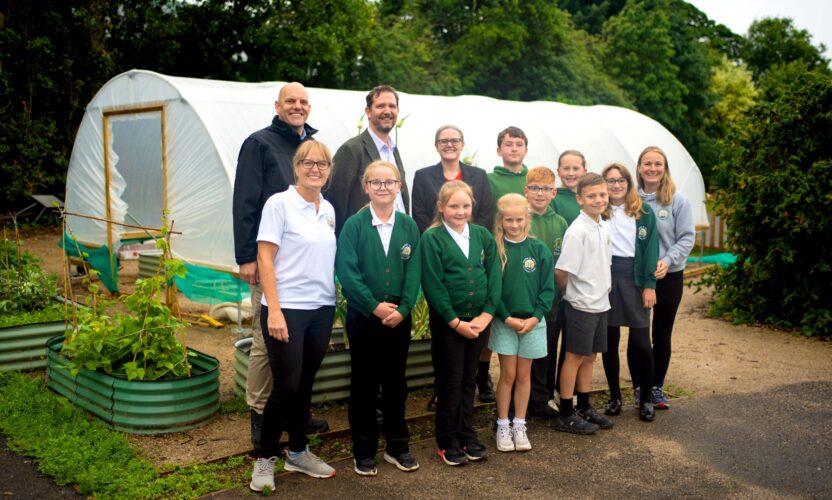
Community space transformed by wind farm funding
Thanks to the funding we have received, combined with the community’s dedication and fundraising success, we have been able to transform it into a space…
 Anne Stevenson
- OnPath Energy's head of technical.
Anne Stevenson
- OnPath Energy's head of technical.
International Women in Engineering Day is about celebrating the amazing work that female engineers around the world are doing to support our lives and livelihoods every day. At Banks Renewables we’re delighted to have experienced, talented and committed women engineers in our team.
So as part of this important day, we spoke to Banks Renewables’ head of technical Anne Stevenson to find out more about her journey so far……
Q1. What inspired you to become an engineer?
I didn’t really have a plan to become an engineer, it kind of just happened! When I was 20 years old I graduated with a physics degree, but without any real idea of what to do with it. After a few years of teaching English in Japan, getting an MSc in optics (still with no idea what to do with it), working in a boarding school and bookshops, I fortuitously found a job working in sustainability and renewables and realised I had found what I was looking for!
In the time I’ve been working in sustainability and renewables the grid carbon intensity in the UK has more than halved, earlier in 2023 the record for the minimum carbon intensity was less than 10% of the average grid carbon intensity compared to when I started in the industry. This year has also seen more renewable energy records broken, with wind and solar producing more renewable electricity in one day than ever before in 2023. I can’t wait to see what further advances are still to come!
The world has seen the effects of climate change for many years now, and those effects have now reached the UK with droughts, floods, record temperatures and increased wildfires. This is why I work in renewables, to do my part, however small, to try and increase the amount of electricity we all get from renewable sources and lessen the negative impact of climate change.
Q2. What do you enjoy most about your work?
Finding solutions to problems (there are no problems, just solutions you haven’t made friends with yet).
Joining the dots in ways that not everyone else can.
Explaining engineering concepts to non/differently-technical people in a way they will understand and seeing the lightbulb moment as they get it.
Q3. Latest statistics show that women make up 16.5% of all engineers in the UK up from 10.5% in 2010 (Source: Engineering UK, March 2022). Why do you think more and more women are working in the sector than ever before and what would you say to young women thinking about a career in engineering?
When I was studying physics and optics, the percentage of female students on the course was quite low and the representation amongst the academics was even lower. It was difficult to ‘see’ yourself progressing in those areas. When I first started working in renewables and sustainability, again, the percentages were quite low. I hope as the percentages continue to increase we can keep the virtuous circle going of increasing representation encouraging increasing participation.
In that time, society has also been changing to a more equal one with e.g. all employees now able to request flexible working. The pandemic has also changed how we work and allowed greater flexibility. However, women still shoulder more of the caring responsibilities in our society. I’m sure gender equality will continue to reduce the gender bias in society in general and in our sector in particular and I hope this will also contribute to more women working in the industry.
I would say to young women considering a career in engineering to believe in themselves and go for it!!
Q4. What have been the biggest challenges in your career and how have you overcome those challenges?
I think the biggest challenge for me has been imposter syndrome, which I think research shows is more prevalent in women. Representation helps with that, and hopefully, as the number of women working in the sector increases, it will help other women feel more confident in their career choice. I have definitely increased in confidence as I have got older and I’m very impressed by the self-assurance of the graduates I have worked with recently – they are nothing like the shy mouse I was when I finished university! I have learned that pushing yourself outside of your comfort zone is important (do one thing every day that scares you!) and that risk should not only be thought of as a negative thing (no guts, no glory).
Q5. How has your career progressed so far and what are your aspirations for the future?
The answer to question 1 tells you the first part of the story, here is the second part to bring you up to date….
When I first started working in consultancy, I was lucky to have a very supportive line manager who encouraged me to apply for an MSc in Renewable Energy Systems Technology, which really sparked my love of renewable technologies, and wind turbines in particular. There followed six years working in wind turbine engineering. Further roles expanded my knowledge of hydrogen, solar and batteries. At Banks Renewables I’m really pleased that I can put all of that knowledge to good use to support the successful development of our renewables portfolio, in my role as head of technical.
Q6. What is the biggest motivator in your role?
Trying to preserve the world in such a way that can still support human life (see also Q1!).
Q7. How has the Banks Group supported your career so far and what are you most looking forward to in the future?
I am relatively new to Banks, but I’m very impressed by the commitment to learning and development in the company, with respect to the access to external training, but also the knowledge sharing across teams and functions works well.
Q8. Do you have an engineering hero and if so, who are they and why do they inspire you?
Both my parents grew up in coastal areas of Scotland, and I live on the coast myself. The number of lives lost before lighthouses were installed is quite shocking. Although not related (as far as I’m aware!) the Lighthouse Stevenson’s overcame seemingly impossible engineering challenges in the most hostile of terrains to light remote rocks and cliffs, that have saved lives year on year.
Originally a physicist (like me), Randall Munroe is the creator of XKCD and author of ‘What if’ and ‘Thing Explainer’. He has the ability to communicate complicated engineering concepts in both simple and thought-provoking ways, for anyone interested check out an example, which happens to be climate change related! https://xkcd.com/1732/

Thanks to the funding we have received, combined with the community’s dedication and fundraising success, we have been able to transform it into a space…

With so many different costs to cover within a school like ours, and so much pressure on budgets, it would have been a real challenge…